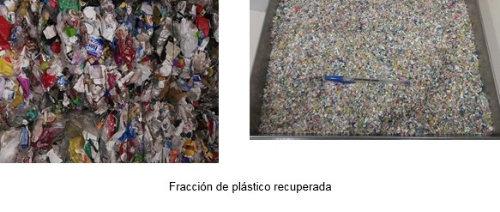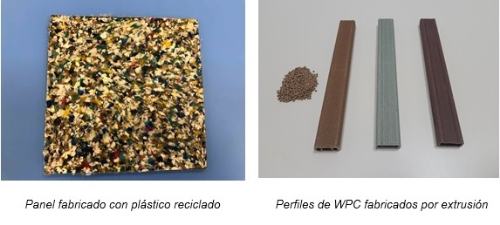News
Addressing the challenges facing SMEs in climate action
News
We provide technological support to BEOTIBAR RECYCLING, ERGOA and LURKOI ATM for waste-based outdoor furniture development
Plastic from urban waste selective collection (recycling point, yellow container) can be used as a raw material in the manufacture of innovative furniture products.
In recent years, both the development of new materials and demand in plastic volume within the packaging industry have risen significantly. Similarly, the recycling of post-consumption waste ratio has shown a gradual and sustainable upward trend in the market.
However, there are still fractions that waste treatment plants cannot recover due to certain limitations (impurities, new materials, sizes, geometries or carryovers). In most cases, the only alternative for rejected fractions is dumping or energy recovery.

Meanwhile, the furniture sector is undergoing a change towards more environmentally-friendly products. Recycled materials or biomaterials are being prioritised to make colourful and economic products with an avant-garde design.
Development of WPC products for outdoor furniture
We have supported BEOTIBAR, LURKOI and ERGOA technologically in the development of WPC products (Wood Plastic Composite) for waste-based outdoor furniture, which improve some of the functions of conventional wood solutions, such as durability.
Therefore, parts and profiles have been developed using by-products in order to manufacture the panelling of modular recycling bins. The product is aimed at schools and colleges in order to be used as a recycling point in the separation of the waste generated. It will become an innovative classification system that encompasses sustainability, functionality and aesthetics.

Material classification, transformation and finish of the final product
Diverse types of waste have been analysed and the joint transformation of plastic and wood has been carried out via an extrusion process. Finally, assembly and validation of the modular recycling bins have been performed, which consisted of mechanical operations (cutting, drilling) in addition to the application of diverse mechanical anchors, adhesives and coatings.
The furniture prototype has been developed within the framework of a multi-disciplinary project co-funded by the Basque Government (2017-2018).